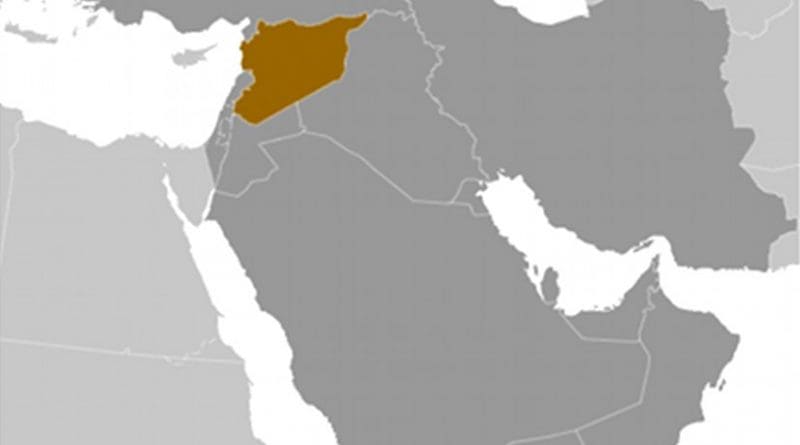Syria Crisis And The Balance Of Power – OpEd
By Press TV
By Mohiyeddin Sajedi
Application of veto at the United Nations Security Council (UNSC) on sanctions resolution against Syria is a very important development in the situation governing the Middle East. The issue bears an international aspect, not being simply limited in its implications to Syria, support for Bashar al-Assad, and developments in the Arab and Middle Eastern region.
The sanctions resolution was vetoed by both China and Russia, while one’s abstention was enough to cripple it. India, Brazil, and South Africa abstained.
The five states have recently formed a grouping, named ‘BRICKS,’ which addresses both the economic and political developments underway on the international arena.
China, being the world’s number two economy, has the US and Europe eyeing it for help. Russia is also gradually moving away from the repercussions of the Soviet Union’s collapse, applying its economic muscle to its political interests. All five states accommodate a great population and have a major share in global production.
In the current world, economic might brings along political influence and clout. The Western world should now prepare to confront another front, which it would ignore until a while ago.
Some say Russia has returned to Cold War with the US, but it slips their minds that China is currently a much greater power on the international arena. The BRICKS seek a big role in leading the Third World. The group’s imposition of two vetoes against the anti-Syria resolution translates to its seriousness in international involvement.
Russia mostly performs the role of the group’s political spokesperson. For Moscow losing Syria as a result of Western military intervention — a case scenario, which befell Libya — means disturbance of balance in the entire stretch of territories extending from the Mediterranean region to the Middle East and Caucasus.
It could seem like Assad is glad over the veto since he is sure that growing international powers back him up and ensure the sustainment of his stay in power.
It is one probability. The measure by Russia and China and other BRICKS members, however, will not be free of charge. The powers do not want to be forced to use the veto once again. They could, hence, turn into an element of pressure upon Damascus so it implements the reforms it has planned as soon as possible since repetition of the vote will incur many costs.
Russian President Dmitry Medvedev has told his Syrian counterpart in a serious warning to either swiftly embark on the reforms and implement them or step down.
Russia’s warning has put the Syrian government under pressure more than the West’s sanctions.
The Russian president has said that his government will confront any regime change in Syria which is assisted by foreign countries, but Russia’s stance should not assure the Syrian leader.
The Western states, which have faced a firm opposition by BRICS nations in the Security Council, don’t want this failure to be construed as surrender. These states have approved many sanctions on Syrian economy and military and political figures during the past few months.
Syria’s oil is hardly exported and their relation with its top economic partner (Europe) is severely damaged.
The Security Council’s resolution against Syria was the first step toward the overthrow of the Syrian regime. The sanctions have been imposed and will be continued. The important point for the United States and the West was the establishment of an international consensus against Syria. Russia and China, which have been deceived on Libya’s no-fly zone case, did not give the West such approval this time.
Turkey will play a more important role. A look at the Turkish press shows that there is a better coordination between Turkish Prime Minister Recep Tayyip Erdogan and US President Barack Obama.
According to Turkish press, a probable plan is to establish a free region in north of Syria with the help of Turkey, where military forces defected from Assad’s army can took refuge, and then the region goes under an international protection and no-fly zone,
The opposition says thousands of military forces of the Syrian army have defected and joined them.
The approval of the resolution could mark the start of this plan and would be completed with other resolutions.
Reports from Turkish press, if true, indicate that the West is going the same way as George W. Bush went to invade Iraq. When he did not manage to get a go-ahead from the Security Council, he formed a coalition with the “New Europe” and some Asian countries and invaded Iraq to overthrow Saddam Hussein.
It is very likely that the Syrian opposition forces are armed as some of the members of the National Opposition Council have clearly stressed the necessity of foreign military support.
Syria’s crisis has become an international conflict which can decide on the future of the balance of powers; a balance of powers not limited to the Middle East.

